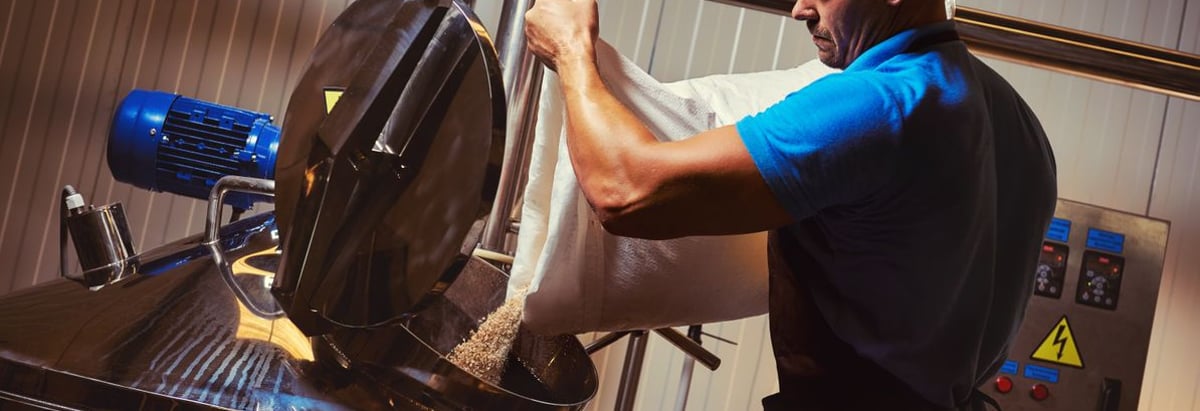Stock Analysis
Tsingtao Brewery Company Limited's (HKG:168) market cap dropped HK$2.6b last week; individual investors who hold 35% were hit as were institutions

Key Insights
- Significant control over Tsingtao Brewery by private companies implies that the general public has more power to influence management and governance-related decisions
- 51% of the business is held by the top 10 shareholders
- 34% of Tsingtao Brewery is held by Institutions
To get a sense of who is truly in control of Tsingtao Brewery Company Limited (HKG:168), it is important to understand the ownership structure of the business. We can see that private companies own the lion's share in the company with 35% ownership. That is, the group stands to benefit the most if the stock rises (or lose the most if there is a downturn).
While the holdings of private companies took a hit after last week’s 3.9% price drop, institutions with their 34% holdings also suffered.
Let's delve deeper into each type of owner of Tsingtao Brewery, beginning with the chart below.
Check out our latest analysis for Tsingtao Brewery
What Does The Institutional Ownership Tell Us About Tsingtao Brewery?
Institutional investors commonly compare their own returns to the returns of a commonly followed index. So they generally do consider buying larger companies that are included in the relevant benchmark index.
As you can see, institutional investors have a fair amount of stake in Tsingtao Brewery. This implies the analysts working for those institutions have looked at the stock and they like it. But just like anyone else, they could be wrong. It is not uncommon to see a big share price drop if two large institutional investors try to sell out of a stock at the same time. So it is worth checking the past earnings trajectory of Tsingtao Brewery, (below). Of course, keep in mind that there are other factors to consider, too.
Tsingtao Brewery is not owned by hedge funds. Tsingtao Brewery Group Company Limited is currently the company's largest shareholder with 33% of shares outstanding. Meanwhile, the second and third largest shareholders, hold 2.8% and 2.7%, of the shares outstanding, respectively.
We also observed that the top 10 shareholders account for more than half of the share register, with a few smaller shareholders to balance the interests of the larger ones to a certain extent.
Researching institutional ownership is a good way to gauge and filter a stock's expected performance. The same can be achieved by studying analyst sentiments. There are a reasonable number of analysts covering the stock, so it might be useful to find out their aggregate view on the future.
Insider Ownership Of Tsingtao Brewery
While the precise definition of an insider can be subjective, almost everyone considers board members to be insiders. Management ultimately answers to the board. However, it is not uncommon for managers to be executive board members, especially if they are a founder or the CEO.
Most consider insider ownership a positive because it can indicate the board is well aligned with other shareholders. However, on some occasions too much power is concentrated within this group.
Our data suggests that insiders own under 1% of Tsingtao Brewery Company Limited in their own names. However, it's possible that insiders might have an indirect interest through a more complex structure. Being so large, we would not expect insiders to own a large proportion of the stock. Collectively, they own HK$63m of stock. It is good to see board members owning shares, but it might be worth checking if those insiders have been buying.
General Public Ownership
The general public-- including retail investors -- own 30% stake in the company, and hence can't easily be ignored. While this size of ownership may not be enough to sway a policy decision in their favour, they can still make a collective impact on company policies.
Private Company Ownership
We can see that Private Companies own 35%, of the shares on issue. It might be worth looking deeper into this. If related parties, such as insiders, have an interest in one of these private companies, that should be disclosed in the annual report. Private companies may also have a strategic interest in the company.
Next Steps:
While it is well worth considering the different groups that own a company, there are other factors that are even more important. For instance, we've identified 2 warning signs for Tsingtao Brewery (1 doesn't sit too well with us) that you should be aware of.
If you would prefer discover what analysts are predicting in terms of future growth, do not miss this free report on analyst forecasts.
NB: Figures in this article are calculated using data from the last twelve months, which refer to the 12-month period ending on the last date of the month the financial statement is dated. This may not be consistent with full year annual report figures.
Valuation is complex, but we're here to simplify it.
Discover if Tsingtao Brewery might be undervalued or overvalued with our detailed analysis, featuring fair value estimates, potential risks, dividends, insider trades, and its financial condition.
Access Free AnalysisHave feedback on this article? Concerned about the content? Get in touch with us directly. Alternatively, email editorial-team (at) simplywallst.com.
This article by Simply Wall St is general in nature. We provide commentary based on historical data and analyst forecasts only using an unbiased methodology and our articles are not intended to be financial advice. It does not constitute a recommendation to buy or sell any stock, and does not take account of your objectives, or your financial situation. We aim to bring you long-term focused analysis driven by fundamental data. Note that our analysis may not factor in the latest price-sensitive company announcements or qualitative material. Simply Wall St has no position in any stocks mentioned.
About SEHK:168
Tsingtao Brewery
Engages in the production, distribution, wholesale, and retail sale of beer products in Mainland China, Hong Kong, Macau, and internationally.

